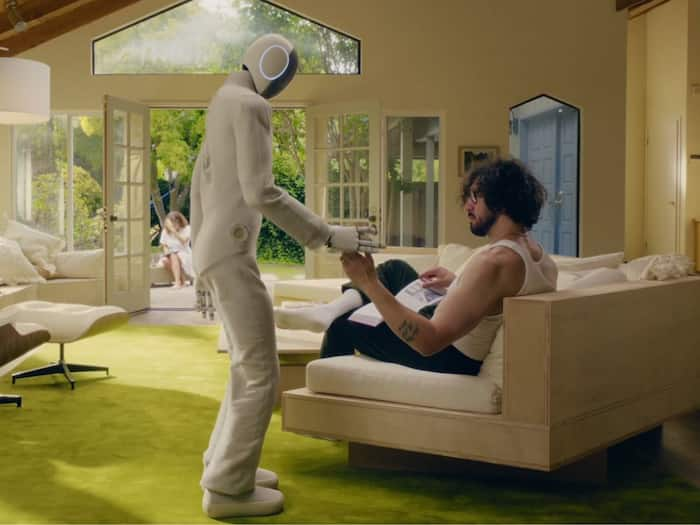
Written By Shubham Arora
Published By: Shubham Arora | Published: Oct 30, 2025, 02:19 PM (IST)

A robotics startup backed by OpenAI investors has unveiled what could be one of the most advanced humanoid robots for homes. American-Norwegian company 1X Technologies has introduced NEO, a $20,000 general-purpose robot designed to perform household chores and assist users with daily tasks. But along with its impressive abilities, questions about privacy and human oversight are already surfacing. Also Read: ChatGPT Health To Replace Your Doctor? Here Is All It Can Do
NEO weighs around 30kg, can lift up to 68kg, and carry loads of 25kg. It looks human-like, dressed in a soft knit suit available in Tan, Gray, and Dark Brown. The company says NEO is “approachable and comfortable to be around,” built to blend seamlessly into homes rather than appear mechanical. It also claims to be quieter than a refrigerator, operating at 22 decibels. Also Read: ChatGPT Tips: Mistakes Most New Users Don’t Realise
Powered by a Tendon Drive system, NEO’s hands feature 22 degrees of freedom, allowing for gentle, human-like movement. The system is adapted from 1X’s earlier industrial robots but redesigned for safe human interaction. NEO connects through Wi-Fi, Bluetooth, and 5G, enabling smart home integration and AI-driven assistance.
NEO comes equipped with an inbuilt large language model (LLM), enabling it to understand voice commands and converse naturally. It listens passively in the background and activates when called by name. The robot also uses visual intelligence to identify surroundings – for example, recognising ingredients on a kitchen counter or suggesting recipes.
However, there’s one feature that’s drawing attention – the “Expert Mode.” When NEO encounters a task it hasn’t learned, users can allow a remote 1X Expert to control it in real time to complete the job. This essentially means someone outside your home could temporarily view and operate the robot inside your living space. While the company insists on safety guardrails and user control, it’s a feature that might raise eyebrows among privacy-conscious consumers.
NEO can perform tasks such as folding laundry, cleaning, fetching items, and turning off lights. It can also remember routines, grocery lists, and birthdays, improving with each update. Interested buyers can pre-order it by paying a $200 refundable deposit, followed by either a $20,000 one-time payment or a $499 monthly subscription.
Deliveries will start in the US in 2026, with international expansion planned for 2027. NEO enters a growing humanoid robot race currently led by Tesla’s Optimus, which Elon Musk says could one day form a “robot army.”